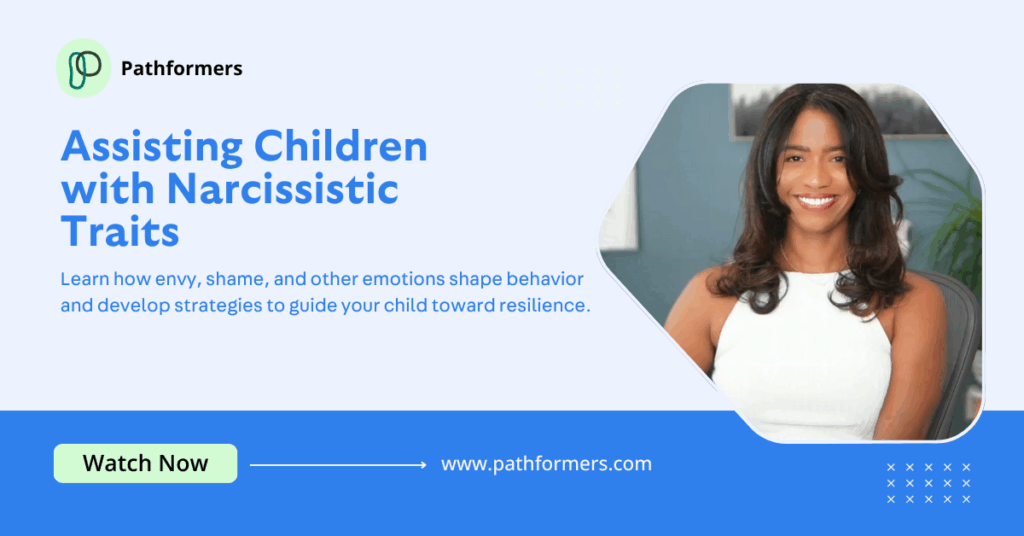Understanding the role of envy and shame in your child’s behavior can be transformative. In this video, you’ll explore how these emotions shape interactions with siblings and peers and learn practical ways to guide your child toward healthier relationships. Discover strategies to help your child process their feelings, reduce conflict, and build empathy while strengthening their emotional resilience.
Assisting Children with Narcissistic Traits
Common Pain Points
Lorem ipsum dolor sit amet, consectetur adipiscing elit, sed do eiusmod tempor incididunt.
Confusion over Normal vs. Narcissistic Behavior
Many parents struggle to differentiate between typical developmental phases and narcissistic traits in children. When a child exhibits a disproportionate sense of grandeur or fantasizes about being all-powerful, it can be confusing and lead to delayed intervention, which can make the problem harder to address later.
Dealing with Defensiveness and Lack of Empathy
Children with narcissistic traits often display defensiveness, denial, and lack of empathy, which can make it hard for parents to communicate effectively with them. These behaviors may initially appear as simple opposition or defiance, leading parents to feel frustrated and uncertain about how to help their child.
Navigating Complex Therapeutic Relationships
When seeking therapy for a child with narcissistic traits, parents often encounter challenges in finding the right therapeutic approach and fit. These children may resist therapy due to their lack of self-awareness, making the process of building trust and collaboration with a therapist more difficult.
Module Benefits
Lorem ipsum dolor sit amet, consectetur adipiscing elit, sed do eiusmod tempor incididunt.
Understanding Early Intervention Strategies
This module emphasizes the importance of early intervention and how identifying narcissistic traits early on can significantly improve outcomes. Parents will learn how to recognize the early signs of narcissism and take timely action to seek professional help.
Building a Collaborative Therapeutic Alliance
Parents will gain insights into the importance of working closely with a child’s therapist to navigate the complex emotional landscape of a narcissistic child. This module provides strategies for fostering a positive, collaborative relationship with therapists to help address defensive behaviors and improve emotional regulation.
Navigating Therapy and Supporting Ego Development
Learn how to support your child’s emotional growth through therapy by helping them strengthen core ego functions like self-reflection, impulse control, and empathy. Parents will also understand the different phases of therapy, including when to focus on supportive structures versus more insight-oriented approaches to encourage self-awareness and deeper emotional growth.
Help Steer Your Child’s Development
Subscribe to our newsletter for exclusive video updates, expert parenting strategies, and the latest insights in child development and mental health.

